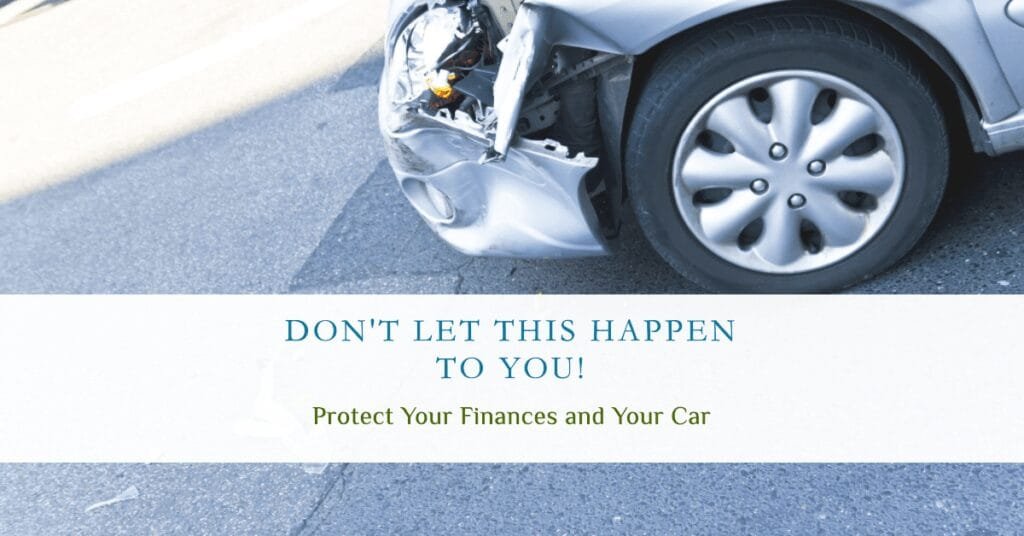Last updated on November 19, 2024
Are you cruising down the highway, wind in your hair, music blasting, and suddenly, the unthinkable happens – you wreck your financed car, and you don’t have insurance! Panic sets in, right? But before you let that panic spiral out of control, take a deep breath. In this comprehensive guide, we’ll navigate the treacherous waters of what happens if you wreck a financed car without insurance. We’ll dive deep into the consequences, your options, and how to protect yourself from financial disaster!
So, if you’re in this nail-biting situation, or if you simply want to be prepared for the worst-case scenario, keep reading. We’re here to equip you with the knowledge you need to make informed decisions and avoid potential pitfalls.
The Unpredictable Road Ahead
Before we embark on this journey through the aftermath of a car wreck without insurance, let’s set the stage by understanding the potential outcomes. When disaster strikes on the road, your life can take a sudden and unexpected turn. Here’s a glimpse of what might await you:
1. Financial Strain
Imagine you’re left with a mangled car, medical bills, and property damage to deal with. Without insurance, these expenses could become an unbearable financial burden.
2. Personal Liability
If you’re at fault, you may find yourself personally liable for the damages to other vehicles, property, and even medical costs of the parties involved.
3. Harm to Your Credit and Well-being
Unresolved debts from the accident can wreak havoc on your credit score and overall financial well-being, making it harder to secure loans or financial stability in the future.
4. Potential License Suspension
Many states can suspend your driver’s license if you’re found driving without insurance, which could hinder your mobility and daily life.
5. Penalties
In addition to potential license suspension, you may face hefty fines and penalties that add to your financial woes.
Now that we’ve glimpsed the potential consequences, let’s delve into the details of what to do if you’re caught in this unfortunate situation.
Your Options When You Wreck a Financed Car Without Insurance
1. Securing a Personal Loan
- What it involves: You may consider taking out a personal loan to cover the immediate expenses resulting from the accident.
- Pros: Provides immediate funds to address the crisis.
- Cons: Interest rates on personal loans can be high, and repayment may become a long-term financial burden.
2. Negotiating a Payment Plan
- What it involves: Contact your creditors, such as the finance company or hospital, and discuss the possibility of setting up a payment plan to spread out your financial obligations.
- Pros: Helps you manage your debts over time.
- Cons: The creditor’s willingness to cooperate may vary, and interest may still accrue.
3. Seeking Help from Family
- What it involves: Reach out to family members who might be willing to assist you financially during this challenging period.
- Pros: Immediate financial support without the need for interest payments.
- Cons: Can strain family relationships, and not everyone may have the means to help.
4. Consulting an Attorney
- What it involves: Hire an attorney who specializes in car accidents to navigate the legal implications of your situation.
- Pros: Legal expertise can help you understand your rights and options.
- Cons: Legal fees can be substantial, and outcomes are not guaranteed.
Seeking Compensation If Another Driver Is at Fault
If the accident wasn’t your fault, you’re not entirely without recourse. Here’s what you can do to seek compensation and minimize the impact on your finances:
1. Contact a Car Wreck Lawyer
- What it involves: Seek the expertise of a car wreck lawyer who can assess your case and guide you through the legal process.
- Pros: Lawyers can negotiate on your behalf and ensure you receive the compensation you deserve.
- Cons: Legal processes can be lengthy, and outcomes vary.
2. Gather Evidence
- What it involves: Collect as much evidence as possible from the accident scene, including photographs, witness statements, and police reports.
- Pros: Strong evidence can strengthen your case.
- Cons: Gathering evidence can be time-consuming.
3. Contact Their Insurer
- What it involves: Reach out to the at-fault driver’s insurance company to initiate the claims process.
- Pros: Can expedite the compensation process.
- Cons: The insurer may try to minimize payouts, so be cautious.
4. Assess Your Car’s Value
- What it involves: Determine the value of your damaged vehicle to ensure you receive fair compensation.
- Pros: Helps you avoid being shortchanged.
- Cons: The process can be complex, and you may need professional assistance.
5. Negotiate a Settlement
- What it involves: Work with your attorney to negotiate a fair settlement with the at-fault driver’s insurer.
- Pros: Can lead to a quicker resolution than going to court.
- Cons: Settlement amounts can vary, and negotiations may be challenging.
6. File a Lawsuit
- What it involves: If negotiations fail, you can take the at-fault driver to court to seek compensation through a lawsuit.
- Pros: Provides a legal avenue to pursue your claims.
- Cons: Legal proceedings can be lengthy and costly.
FAQs: Answering Your Burning Questions
What happens if I’m not at fault in the accident?
If you’re not at fault, you can typically seek compensation from the at-fault driver’s insurance. However, it’s essential to gather evidence and navigate the claims process effectively to ensure you receive fair compensation.
Can being uninsured affect my credit score?
Yes, being uninsured can lead to unresolved debts from the accident, which can negatively impact your credit score and financial well-being.
Are there any states where car insurance isn’t mandatory?
Yes, New Hampshire is the only state where car insurance isn’t mandatory. However, even there, if you cause an accident without insurance, you’re still liable for damages and injuries to others.
What if I can’t afford a lawyer after the accident?
If you can’t afford a lawyer upfront, some attorneys work on a contingency fee basis, meaning they only get paid if you win your case. This arrangement can make legal representation more accessible.
How can I find affordable car insurance?
To find affordable car insurance, consider comparing multiple policy quotes, asking about discounts, maintaining a clean driving record, selecting the right coverage, and reviewing deductible options. Rates vary by provider and personal factors.
Conclusion
Facing the aftermath of wrecking a financed car without insurance can be a daunting experience, but it’s crucial to remember that there are options and resources available to help you navigate this challenging situation. Whether you choose to secure a personal loan, negotiate payment plans, seek assistance from family, or consult an attorney, taking proactive steps is essential to protect your financial well-being.
If the accident wasn’t your fault, don’t hesitate to explore legal avenues to seek compensation. Remember to gather evidence, contact the at-fault driver’s insurer, assess your vehicle’s value, and, if necessary, file a lawsuit with the guidance of a qualified attorney.
Ultimately, while the road ahead may be uncertain, being informed and prepared can make all the difference when you wreck a financed car without insurance. Stay proactive, protect your rights, and take the necessary steps to secure your financial future.





